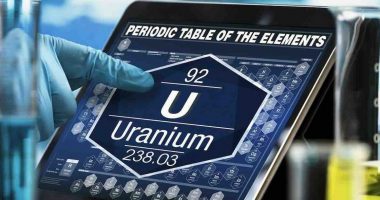- Agtech developer Bio-Gene Technology (BGT) has received positive results from soil eco-toxicity studies on its Flavocide insecticide
- The biochemistry of soils is important to their ongoing fertility, with a complex web of organisms contributing to different aspects of soil health
- Study results indicate no longterm negative effects on soil microbiomes, and negative effects within an acceptable range for earthworms
- The company is aiming to licence its novel tech to commercial partners to avoid the need for marketing and product development, reaping royalties instead
- Bio-Gene Technology closed Tuesday’s session 3.85 per cent higher at 13.5 cents
Agtech developer Bio-Gene Technology (BGT) has received positive results from soil eco-toxicity studies on its Flavocide insecticide.
The results will underpin future studies as the company seeks to monetise its novel compound.
The study
The study was undertaken with technical grade flavesone, the active constituent
of Flavocide.
The work builds on previous eco-toxicity studies testing the effects of flavesone on non-target organisms in soil-based ecosystems.
The most recent study was designed to investigate potential toxic effects in earthworms, as well as potential long-term effects on soil microorganisms after a single exposure.
The biochemistry of soils is important to their ongoing fertility, with a complex web of organisms contributing to different aspects of soil health.
If a pesticide has too heavy an effect on the functioning of the soil biome, it can affect nutrient cycling and the ongoing health of the soil in general.
These effects are particularly important for farming applications, where soil health is obviously a key factor.
The assessment of flavesone on earthworms involved a dose range finding study to assess the impact on the creatures at increasing levels of exposure.
Early indications are that Flavocide would be classed as ‘moderately toxic’ to earthworms, which is within the range of currently registered insecticides and accordingly represents a relatively positive outcome.
The results in microorganisms were even better, with a dose above expected exposure levels yielding no negative effects on their regenerative functioning.
While more studies will potentially be required to refine the toxicity data, these early indications lend considerable promise to Flavocide’s eventual entry to market.
Outlook
Bio-Gene will present the results to its product evaluation partners, BASF and Clarke, for assessment in stored grain pest control and public health mosquito
control.
The company is aiming to develop commercial licence agreements for its novel tech to create a business model built on income from milestone payments and royalties.
By leveraging the capabilities of commercial partners, Bio-Gene is hoping to gain easier access to global markets without need for the associated product development and marketing infrastructure that goes along with commercialisation.
The company is concentrating on its intellectual property portfolio — spanning novel compounds and manufacturing — in line with its “hands-off” approach to the commercial side of things.
The latest study is another important step on the road to market.
Bio-Gene Technology closed Tuesday’s session 3.85 per cent higher at 13.5 cents.






